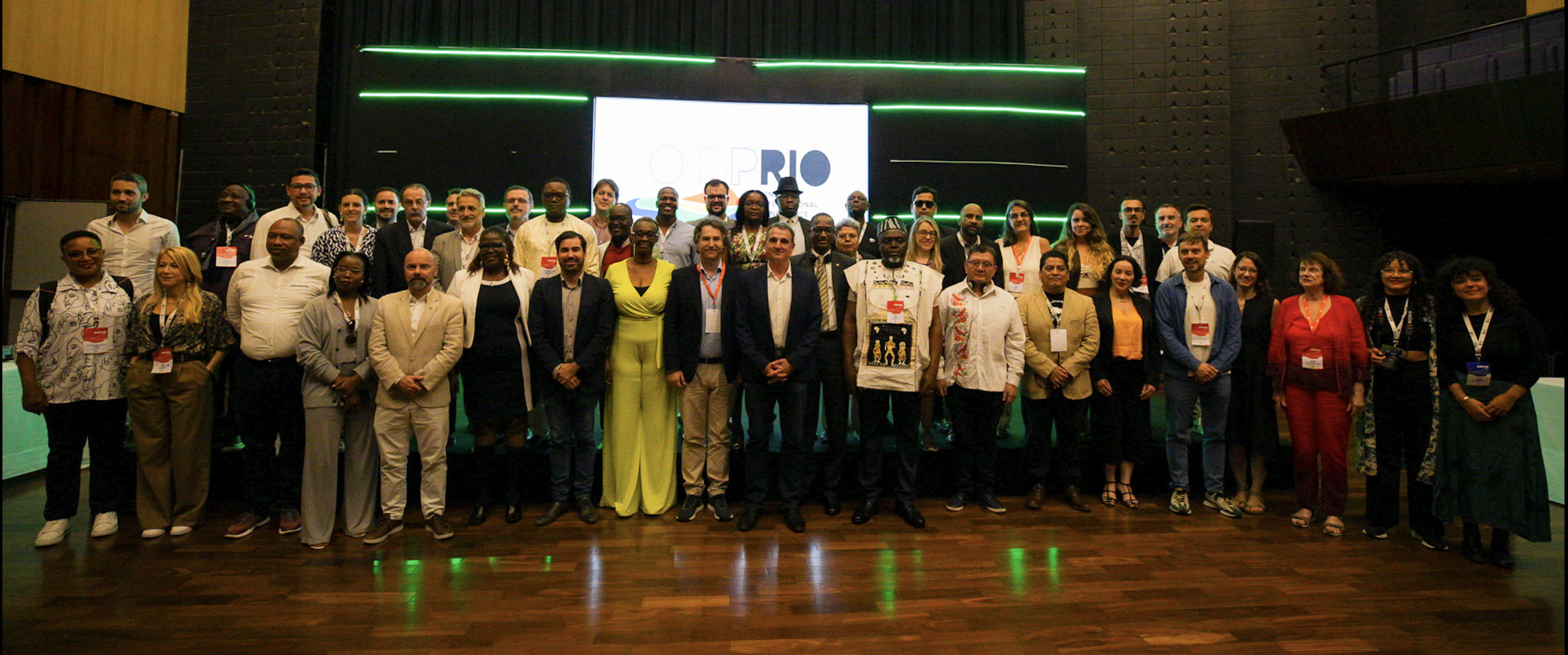The IOPD Assembly adopted a final declaration, the network's new political reference document
The 22nd IOPD Conference in Rio de Janeiro focused on the theme "Participatory Democracy for Diverse, Inclusive and Transparent Cities", bringing together 375 local and regional leaders, along with representatives of international organisations, academics and civil society. The General Assembly held during the conference addressed critical issues and outlined significant commitments to improve local and global governance.

All photographs: Marco Antonio Lima / Rio de Janeiro City Hall
Delegations present at the Assembly highlighted the following points:
1. Pressure on democratic values and international laws: Democratic values, the UN Charter, and International Humanitarian Law face threats in various regions, as evidenced by ongoing conflicts such as Russia-Ukraine and Israel-Hamas. They support the UN resolution for a ceasefire in Gaza and advocate for a peaceful resolution, endorsing the UN institution and its Secretary-General.
2. Distrust in the efficiency and fairness of politics and governmental action: There's growing citizen distrust in the effectiveness and fairness of partisan politics and governmental action at local and national levels, eroding the foundation of representative governance and hindering the possibility of diverse, transparent, and open governments.
3. Negative impact of the spread of fake news and deep fakes: The dissemination of fake news and deep fakes through social media and artificial intelligence is polarising and straining public opinion. This increases risks to vital activities such as independent thinking, participative politics, and professional journalism, all essential for open and democratic societies.
4. Challenges for social rights and basic infrastructure: Social rights, basic infrastructure, public goods, and services—encompassed by the New Urban Agenda and the 2030 Sustainable Development Goals—are challenged by climate change and the lack of adequate public and private financing, particularly in the global south, further impairing the fiscal and political resilience of local governments..
Commitments made by governments and other delegations include:
1. Democratic culture: Promoting a culture of democracy and participation in education, civic leadership, and empowerment for future generations.
2. Effective citizen participation: Implementing mechanisms ensuring active and inclusive participation of all in decision-making.
3. Inclusion and attention to vulnerable groups: Focusing on equality by including and giving voice to vulnerable groups like migrants, youth, women, and others.
4. Transparency and open government Promoting transparency in public management and access to information.
5. Respect for human rights: Commitment to strengthening and safeguarding human rights in all aspects.
6. Support for the IOPD network: Actively contributing to strengthening the IOPD network in its work for participatory democracy.
7. Collaboration among cities and local governments: Collaborating to foster solidarity and cooperation among cities and local governments for mutual benefit.
Local and regional governments urge national governments and international organizations to:
1. Promote multilevel governance—inclusive, participatory, and responsible.
2. Foster mechanisms for participatory and deliberative democracy at national and international levels.
3. Finance and provide resources for experience exchange projects and dissemination of best practices.
4. Promote necessary regulations for major social media platforms to contribute to fostering a debate on the role of social media in the global economy.
5. Drive necessary regulations to ensure major digital social media platforms enable a balanced public debate and prevent algorithms from favoring the spread of extremist ideas.
6. Encourage regulations to ensure freedom of expression, opinion, and information, preventing the use of algorithms to spread extremist ideas.